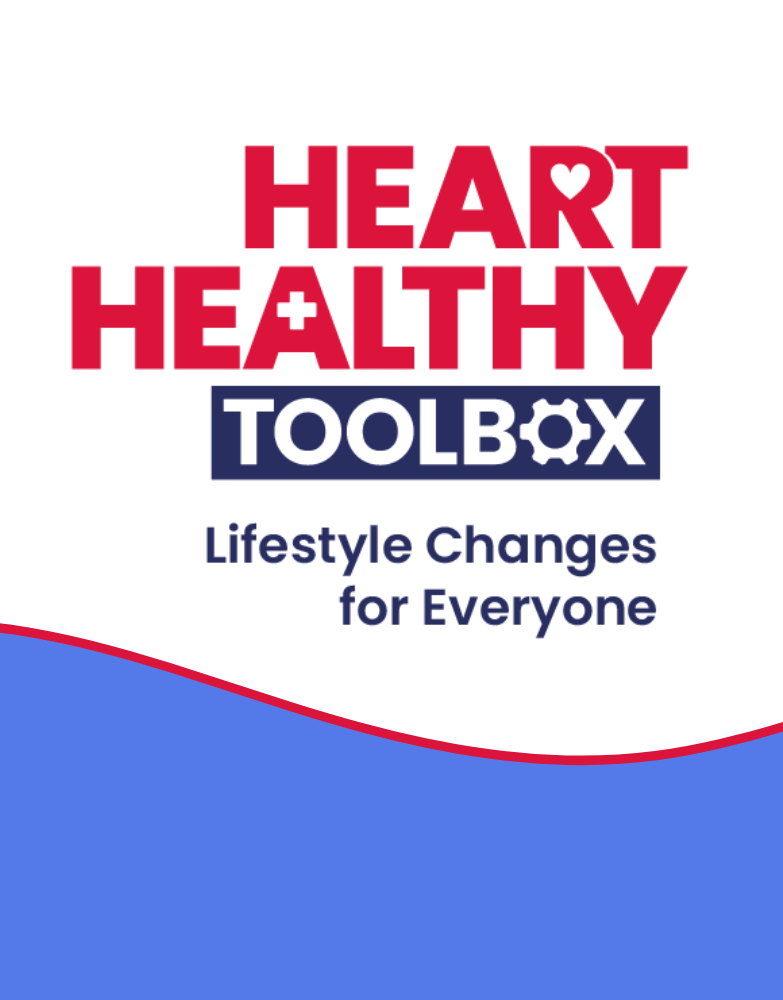Tools for healthcare professionals identify current guidelines and standards of care for people with diabetes. Patient tools include identification and treatment of hypoglycemia and hyperglycemia, and links to a helpful glucose log.
Components
Components are available to download individually or together as the whole section. You can also view all sections of the Heart Healthy Toolbox.
For Patients
- Signs and Symptoms of Hypoglycemia
- Signs and Symptoms of Hyperglycemia
- My Glucose Log
For Providers
- Managing Diabetes (also available below)
Managing Diabetes
The following information provides context for the management of diabetes and diabetes risk factors in patients who are under the care of cardiovascular disease healthcare. For the full complement of the most recent standards of care for diabetes, visit professional.diabetes.org/standards-of-care.
Key Takeaways
- Person-centered care that includes social determinants of health and empowering terminology is at the forefront
- Use “person with diabetes” (PWD) rather than the term “diabetic”
- The interconnectedness of heart, kidney, and metabolism has been identified under the context of Cardio-Kidney-Metabolic syndrome, a newer term to reflect these interactions
- Diagnosis and management of people with diabetes continues to require coordinated, team-based care
Diabetes occurs when blood glucose levels are too high, and is caused by the inability of the pancreas to produce enough—or any—insulin, or when the body doesn’t respond properly to the effects of insulin
Risk Factors, Complications, and Treatment Goals for Adults with Diabetes
| Risk Factors or Complications | Goals for Adults with Diabetes or Recommended Tests | Frequency |
|---|---|---|
| Glycemic Control | HbA1c < 7% < 6% consider on individual basis | 2 times/year if at goal or quarterly if Rx change or not at goal |
| Fasting & Capillary Plasma Glucose | Preprandial: 70-130 mg/dL, (5-7.2 mmol/L) * Postprandial: <180 mg/dL, (<10.0 mmol/L) *1-2 hr after beginning a meal | Varies depending on Rx regime Individualize to facilitate reaching goal |
| Anti-platelet Agents Aspirin | 75-162 mg daily for those: As a secondary prevention strategy in those with diabetes and a history of ASCVD | Limited evidence for those ≤30 yrs old Not recommended for those ≤ 20 yrs old |
| Blood Pressure Hypertension | BP <130/80 mmHg If autonomic neuropathy present Sit/Stand BP All patients with DM & HTN should be treated with ACE inhibitor or ARB | At every visit |
| Cholesterol Dyslipidemia Complete Lipid Panel | LDL<100 mg/dL, (<2.6 mmol/L) • In pts < 40 years w/o CVD but w/ CV risk factors or increased duration of DM, treat to LDL-C goal<100 mg/dL • In pts > 40 yrs w/o CVD begin statin Rx to achieve 30%-40% LDL-C reduction regardless of baseline LDL • In pts w/overt CVD treat with lifestyle and statin to achieve 30-40% LDL-C reduction • <70 mg/dL (1.8 mmol/L) using high dose statin is optional HDL-C >40 mg/dL, (>1.1 mmol/L) Consider >50 mg/dL in women TG <150 mg/dL, (< 1.7 mmol/L) Non-HDL-C 30 points above LDL goal | Annually or more often if not at goal or changing Rx |
| Cardiovascular Disease | Stress exercise testing, Echocardiogram, ABI, Carotid ultrasound | As appropriate in presence of Sx or CV risk factors |
| Weight Loss | Saturated Fat < 7 % of daily caloric intake Weight loss recommended for BMI ≥ 25 kg/m2 | At each visit if overweight/obese or not at goal weight |
| Eyes (Retinopathy) | Dilated comprehensive eye exam | Type 2 DM—Annually Type 1DM—Initially w/in 5 yrs of onset DM; annually thereafter |
| Exercise | A regular physical activity program adapted to the presence of complications If able, at least 150 min/wk of moderate intensity aerobic physical activity distributed over 3-7 days a week | Review at each visit |
| Foot Care (Neuropathy) | Quantitative Somatosensory threshold test using Semmes-Weinstein 5.07 (10g) monofilament, tuning fork, palpation, and visual inspection | Annual comprehensive exam Visual exam at each visit with neuropathy |
| Smoking | Complete Cessation | Ask at every visit |
| Kidney (Neuropathy) | Serum Creatinine Albumin/creatinine ratio (Random spot urine) 2 of 3 tests should be abnormal w/in a 3-6 mo period before making a new diagnosis | Annually Type 2DM – Annual Type 1DM - Annual with ≥ 5yr duration of DM |
| Artery Disease | Screening Consideration | Diabetes duration ≥10 years & high CV risk |
| Influenza & Pneumonia | Immunization (vaccination) | Influenza - Annual Pneumococcal - Once May repeat under certain circumstances |
| Periodontal Disease | Dental Evaluation | Annually |
| Diet | Individualized nutritional assessment, recommendations and instruction by RD Low carbohydrate diets (restricting carbs <130 g/day are not recommended) | Diet consultation initially & when appropriate At each visit if overweight/obese or not at goal weight |
Supported by independent educational grants from Merck & Co, Inc. and Novartis Pharmaceuticals Corporation.
Resource Details
Reviewed on
September 3, 2025
Language(s)
- English
Download Resource
Related Resources







